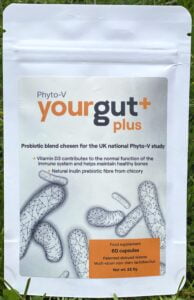Tips to reduce symptoms of sinusitis and hay fever
.
Typical symptoms of sinusitis and hay fever include a blocked runny nose, sneezing, itchy eyes, nose or throat. It is possible to get temporary relief from antihistamines but although these help the symptoms they don’t affect the underlying cause of the allergy to pollen. What’s more, even antihistamines such as loratadine, cetirizine, fexofenadine can still cause drowsiness and brain fog impairment especially in the elderly. Some people can also experience headaches, dry mouth and rarely irregular heartbeats (arrhythmias) which could have serious consequences.
One, impractical strategy, emphasised on the NHS website, involves avoiding contact with pollen by staying indoors with the windows closed when the pollen count is high but this does not treat disease itself. Fortunately, there are plenty of scientific data to support a number dietary and lifestyle manoeuvres which can reduce the underlying causes of allergy. Here are the one’s which have the most credibility:
.
Rinsing (douching) the sinuses
Clinical trials have found that nasal irrigation with saltwater improved symptoms of allergic rhinitis in adults and children. It works by washing away allergens and mucus, as well as reducing inflammation and swelling in the nasal cavities. The evidence is so strong, it was included as part of the international 2021 consensus on how to manage common sinus issues. There a number of apparatus available commercially but the one featured in the video called Rhineeze stands out as it does not require batteries or refills and, speaking from experience, it has just the right amount of saline volume and power to comfortably wash out the nose. Two to three times a certainly does help with the nasal congestion.
Vitamin D.
Studies have reported that people with low vitamin D levels have worse hay fever symptoms as well as other allergic diseases such as asthma, eczema and food allergy. Regular, sun exposure (without burning) is the best way to maintain vitamin D levels although vitamin D can be found in some foods such as sundried mushrooms and oily fish. Supplementation is a good way to maintain levels especially if you don’t usually take a winter holiday. The best supplements combine vitamin D with a prebiotic and probiotic which are known to enhances absorption and utilisation.
Look after your gut health:
The bacteria in our gut have a big influence on our immunity so it’s not a surprise that studies have linked poor gut health with worse hay fever symptoms. Lifestyle and dietary strategies to improve gut health, include quitting smoking, lowering alcohol and proceeded sugar as well as increasing intake of pro-bacteria bacteria rich foods such as kimchi, kefir and sauerkraut and well as pre-biotics in beans, mushrooms, herbs and vegetables.
 Probiotic supplements:
Probiotic supplements:
Several studies have demonstrated that 10-12 weeks of a good quality probiotic could reduce the severity of hay fever for some people. The best evidence is for lactobacillus probiotic bacteria but if you are thinking of this strategy, ensure you take non-histamine inducing strains such as those in Yourgutplus which also contains a good quantity of vitamin D.
Phytochemical rich foods:
Plants are rich in natural chemicals called phytochemicals which provide their colour, aroma and taste but also have enormous health benefits. They help hay fever via a number of mechanisms including enhancing the specificity of the immune system and reducing excess inflammation. They are abundant in vegetables, salads, herbs, teas, nuts, fruits, mushrooms, seeds and legumes more often used in Asian and Mediterranean diets and unfortunately often lacking in UK diets.
Phytochemical rich supplements:
In two trials involving patients with allergic rhinitis, boosting intake ofginger and turmeric with extracts improved nasal symptoms and quality of life. More proof was discovered in a study from Japan which was initially designed to show that a phytochemical rich supplement which contained turmeric, green tea, broccoli and pomegranate helped reduce menopausal symptoms but another interesting outcome was reported. The study happened to take place during the cherry blossom season, the peak time for hay fever in Japan. About a quarter of the participants said their hay fever symptoms were significantly better than previous years almost certainly because of the their phytochemical intake was boosted by the capsule. Formal trials comparing this supplement against placebo are planned but in the meantime as these capsules are safe, low cost and well tolerated they are a certainly a practical option to try.
In conclusion, one single lifestyle strategy is unlikely to reduce the need for antihistamines, especially when symptoms are at their peak. It’s more likely that combining all these self -help strategies together will reap benefits and then only with persistence and determination.
